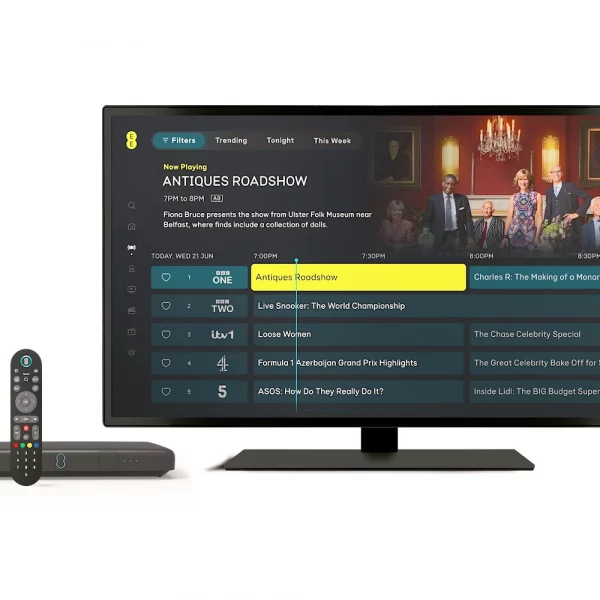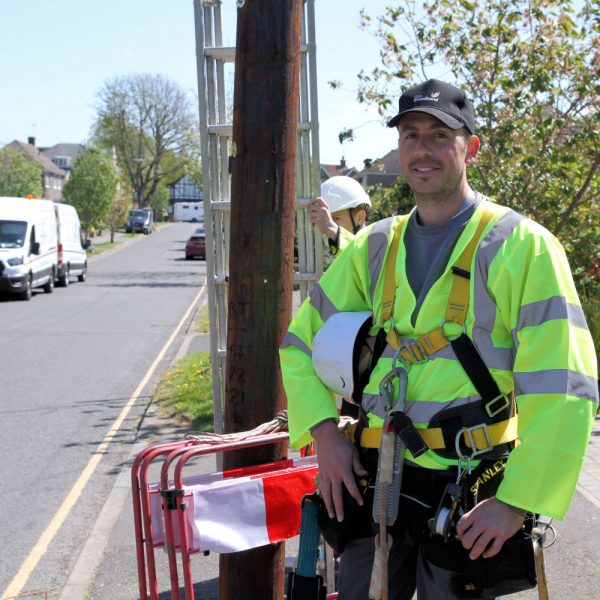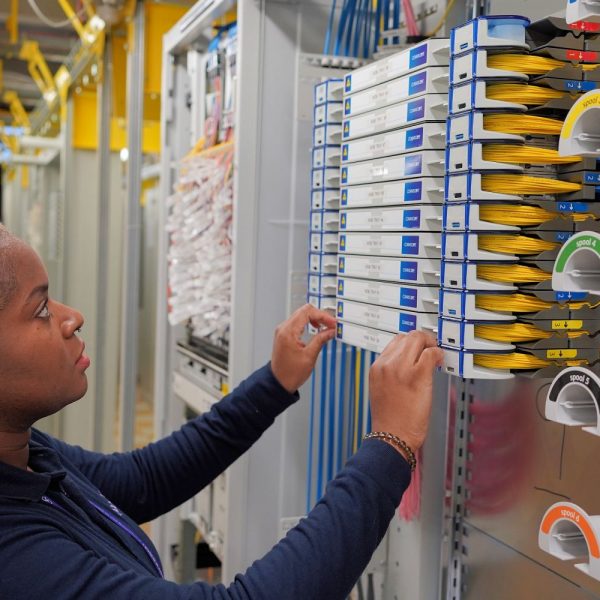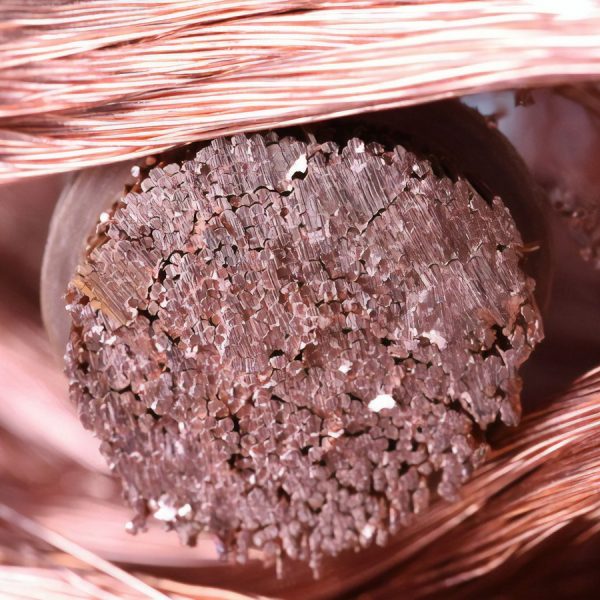Sponsored Links
UPDATE UK Government Reveals National Broadband Strategy and Rural Digital Hubs
Posted: 06th Dec, 2010 By: MarkJ

 The UK Secretary of State for Culture, the Olympics, Media and Sport (DCMS), Jeremy Hunt, has today released an official outline of the governments national broadband strategy - 'Britain's Superfast Broadband Future'. The plan includes mention of bringing a 'Digital Hub' to every community in the country, which would be connected by fibre optic lines and help most rural areas get "super-fast" access to the internet by 2015.
The UK Secretary of State for Culture, the Olympics, Media and Sport (DCMS), Jeremy Hunt, has today released an official outline of the governments national broadband strategy - 'Britain's Superfast Broadband Future'. The plan includes mention of bringing a 'Digital Hub' to every community in the country, which would be connected by fibre optic lines and help most rural areas get "super-fast" access to the internet by 2015.As it stands the government has two key broadband objectives, which will all be directed through its Broadband Delivery UK (BDUK) division. Firstly, it wants to make sure that virtually every community in the country has access to a minimum broadband ISP download speed of 2Mbps by 2015 (Universal Service Commitment). Funding for this has now been aligned with their superfast broadband plans (below).
Secondly, it seeks to help foster a roll-out of "super-fast" (Next Generation Access [NGA]) broadband into the "Final Third" of UK towns and villages where private sector investment alone cannot reach. The private sector itself is expected to cover up to around 70% of the country.
Jeremy Hunt said:
"A superfast network will be the foundation for a new economic dynamism, creating hundreds of thousands of jobs and adding billions to our GDP. But it is not just about the economy, around the world there are countless examples of superfast broadband helping to build a fairer and more prosperous society, and to transform the relationship between Government and citizens."
"A superfast network will be the foundation for a new economic dynamism, creating hundreds of thousands of jobs and adding billions to our GDP. But it is not just about the economy, around the world there are countless examples of superfast broadband helping to build a fairer and more prosperous society, and to transform the relationship between Government and citizens."
Sadly the governments various departments still can't agree upon what "super-fast" actually means (The Definition of UK Superfast Next Generation Broadband), although Ofcom refers to it as any technology that can "achieve higher speeds than 24Mbps". By contrast the EU intends to bring basic broadband to all Europeans by 2013 and superfast 30-100Mbps services by 2020.
It's worth putting this into context. According to Ofcom's May 2010 data, the average broadband download speed in the country is 5.2Mbps (here). A separate November 2010 study put the figure at 5.55Mbps, although upload speeds are far slower at just 0.623Mbps (here). That's a long way off 24Mbps+.
The government still hasn't set any solid targets for its NGA plan either, except to say that it wants the UK to have "the best broadband network in Europe" by 2015. However Hunt did get close when he commented that the plan would make advanced internet services viable for "85% to 90% of the country". It looks like the last 10-15% may be stuck with Satellite for awhile.
To do all this it has set aside £530m (£300m from the BBC TV Licence fee) until 2015, which could rise to £830m by 2017 if needed (more BBC money). The fundamental points of today's plan, many of which you will already be familiarly with, are as follows.
The UK Broadband StrategyThere are many things to like in the government's plan, such as its 'Digital Hub' idea. This strikes us as being one of the most significant surprises, although at present there is a serious lack of information concerning how these would actually work.
* Making BT's existing infrastructure of cable ducts and telegraph poles available to rival operators (Ofcom to set rates for this in January 2011).
* No change to the controversial Fibre Tax beyond August 2010's new guidance.
* A 'Digital Hub' (i.e. Digital Village Pump) in every remote and rural community (areas that would not benefit from private sector investment). These will connect, via fibre optic cable, to the communities nearest telephone exchange and help to bring faster services than would ordinarily be available.
* Improving Mobile Broadband (3G/4G) speeds and coverage through various regulatory changes and radio spectrum auctions. This includes making 800MHz (old analogue TV signals) and 2.6GHz available for use by future mobile data solutions ( 4G / LTE ). It will also allow existing 900MHz and 1800MHz (2G voice spectrum) to be used for 3G internet services.
* Benchmarking to help compare how well the UK's broadband roll-out is doing versus Europe; speed, availability, market competition and value are likely to be key weighting factors.
* Updating the guidance for road works. This would hopefully allow network operators to dig new fibre optic cables with lower roll-out costs.
* New guidance for builders to ensure the broadband readiness of new build homes and business premises.
* Adoption of a technology neutral approach to fixed-line broadband, Satellite and wireless ( Wi-Fi etc. ) solutions (i.e. they won't specifically favour one over the other).
* Second batch of super-fast pilots, chosen from the first April 2011 bids/proposals (funding of £50m allocated from the BDUK budget).
In particular it's not clear who would actually own or control these hubs, which is a crucial point. Jeremy Hunt's speech talks about devolving some of the government's decision making processes to the most local level possible, although again we can only speculate about what this might mean in practice.
However there are still a number of crucial problems with what has been proposed. The most obvious of which is the government's repeated failure to address the controversial Fibre Tax imbalance, which effectively sees smaller ISPs being charged disproportionately more than BT for installing fibre optic lines into rural areas.
It's also understood that BT will have little choice but to allow access to its ducts and poles for ISPs offering residential broadband services, which is good. However those seeking to offer business services could still be prevented. In addition, so far only BT has been asked to open up its cable ducts, rival operators have escaped (e.g. Virgin Media, utility operators etc.).
There's also the not insignificant matter of funding. Certainly £830m is a lot of cash, although it falls some way short of the £2bn to £3bn that several earlier government reports and reviews had originally estimated. To make matters worse, that was only a minimum estimate.
Still, generally speaking, the news remains broadly positive. Few could doubt the benefits of improving our national broadband infrastructure. The London School of Economics (LSE) calculates that a super-fast Britain would create 280,000 new jobs, while the Federation of Small Businesses (FSB) says that it could add £18bn to the UK's GDP.
UPDATE 12:43pm
The full report can now be downloaded here - Britains Superfast Broadband Future (PDF).
UPDATE 15:41pm
Curiously the DCMS appears to now be confirming that their Digital Hub idea could also mean FTTC. In other words, BT FTTC, which brings a fibre optic cable to your street cabinet and then delivers the remaining connection over existing copper cables and VDSL2 tech. This sounds extremely misleading to us as it blurs the waters between true 100% fibre optic "Digital Village Pumps" and existing FTTC solutions.
So apparently your BT street cabinet is now to be re-marketed as something that sounds much more radical, a 'Digital Hub', despite being more or less the same thing as it always was.
Search ISP News
Search ISP Listings
Search ISP Reviews
Latest UK ISP News








Cheap BIG ISPs for 100Mbps+
150,000+ Customers | View More ISPs
Cheapest ISPs for 100Mbps+
Modest Availability | View More ISPs
Latest UK ISP News
Helpful ISP Guides and Tips
Sponsored Links
The Top 15 Category Tags
- FTTP (5557)
- BT (3523)
- Politics (2545)
- Openreach (2307)
- Business (2272)
- Building Digital UK (2248)
- FTTC (2049)
- Mobile Broadband (1981)
- Statistics (1792)
- 4G (1673)
- Virgin Media (1629)
- Ofcom Regulation (1470)
- Fibre Optic (1398)
- Wireless Internet (1395)
- FTTH (1382)
Sponsored
Copyright © 1999 to Present - ISPreview.co.uk - All Rights Reserved - Terms , Privacy and Cookie Policy , Links , Website Rules






























